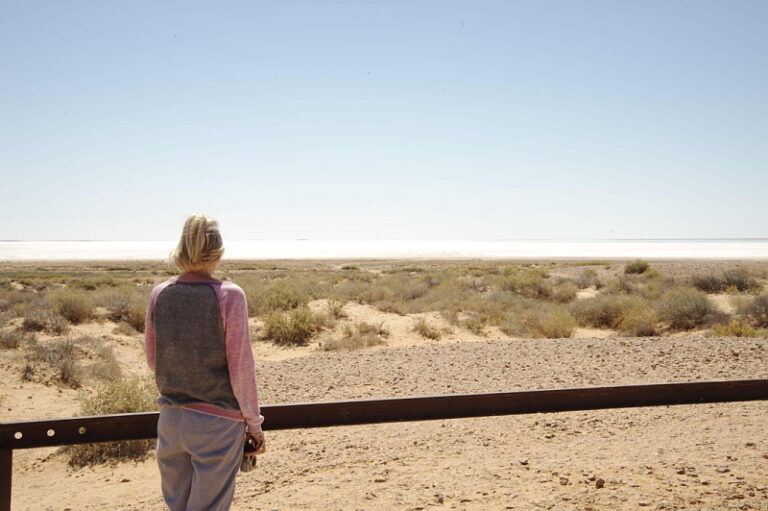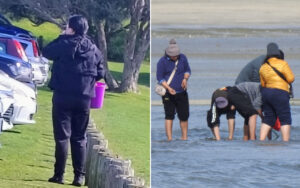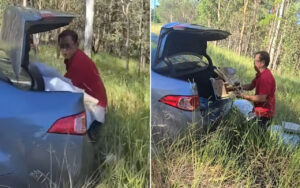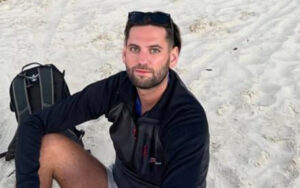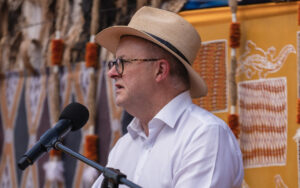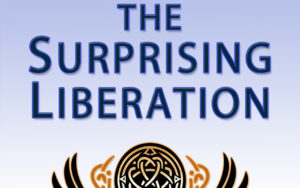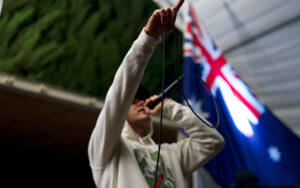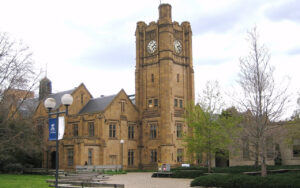Australians will be banned from entering the country’s second largest national park without permission from local Indigeous bureaucrats, despite assurances access would not be restricted when native title was granted just 12 years ago.
Lake Eyre, the country’s largest lake, has been co-managed by The Arabana Aboriginal Corporation (AAC) since non-exclusive native title was granted in 2012, in a land use agreement covering almost 70,000skm – 1.5 times the size of Switzerland. It was also given a dual name.
But a new management plan proposed by the South Australian government and the AAC would ban visitors from walking, driving or boating on the lake bed without permission from the so-called traditional owners.
Arabana Aboriginal Corporation chairperson Bronwyn Dodd told ABC News: “From a cultural aspect, that’s really disrespectful to enter such a significant cultural site.

“For us, our ancestors are there, our stories are there, and it’s a very powerful place for Arabana.”
Ms Dodd claimed that when Indigenous elders see driving or boating on the lake they “deeply hurt inside”.
“It hurts them to see our country hurt like that, when it’s being disrespected in such a way,” she said.
“They have tried to engage over the years and to help protect and preserve that, but it’s certainly a deep hurt when we see people disrespecting such a culturally significant site to us.”
The lake floods every three to 10 years, becoming deep enough to boat in, attracting thousands of tourists.
Lake Eyre Yacht Club commodore Bob Backway, who expressed his concerns about restricted access when native title was granted 12 years ago, said the proposal would end up “effectively privatising the national park”.
“We respect physical evidence of Arabana culture and we have strict rules in our club that we only look, examine, study and photograph, but put back any relics that we find out there,” he said.
In 2012 he told ABC News: “We have a perfect common law right to boat on that waterway, and we’ll probably make another public statement like we did last year in the hope that it will go to court and sanity will prevail.”
But his concerns were brushed off by local Aboriginals who insisted boating and fishing would not be a problem.
Director of National Parks Programs with the National Parks and Wildlife Service Jason Irving said the state government recognised that Lake Eyre is a special and sacred site to the Arabana people.
“We are committed to genuine partnership with Arabana people through our co-management agreement,” Mr Irving said.
“The request for visitors not to enter a sacred cultural site is made in recognition and respect for Arabana culture, and to ensure the safety of visitors.
“People are still encouraged to enjoy the park and view the spectacular lake bed from designated visitor areas or from the air.”
The two designated visitor areas would be Halligan Bay Point Campground and the southern information bay off the Oodnadatta Track.
The proposal comes after visitors were banned from climbing Ayers Rock in 2019, Mt Warning in NSW was closed by the supposed Aboriginal owners, rock climbing routes in the Grampians in Victoria were closed to the public in 2020, and restrictions were proposed for three sites in Queensland.
The public can submit their views on the Lake Eyre proposal online until July 19, 2024.
